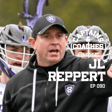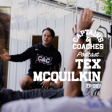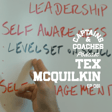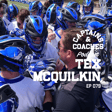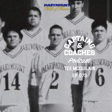
059 - 3 Make or Break Coaching Mindsets
What if everything you think you know about coaching young athletes is backwards?
In this eye-opening episode of the Captains and Coaches Podcast, host Tex McQuilkin breaks down game-changing insights from Dr. David Jaeger's book "10 to 25" that will revolutionize how you approach leadership and development.
You'll discover:
- The hidden "Neurobiological Incompetence Model" that's sabotaging coaches everywhere—and how to flip the script
- Why the popular "compliment sandwich" method is scientifically flawed (and what actually works instead)
- The 3 coaching mindsets that determine whether you build champions or break spirits
- How to solve the "Mentor's Dilemma"—giving tough feedback that motivates instead of crushing confidence
This isn't theory—it's practical wisdom you can apply immediately. Whether you're coaching your own kids, leading a team, or developing talent in any field, this episode will transform how you communicate, set expectations, and unlock untapped potential.
Stop defaulting to outdated methods that hold athletes back. Learn the mentor mindset that creates confident, resilient performers who thrive under pressure.
Training - Old Bull Program - 7 Day Free Trial - https://bit.ly/old-bull-train
Education - Why They're Not Listening: Coaching the Modern Athlete - http://listen.captainsandcoaches.com
#CoachingMindset #AthletesDevelopment #YouthSports #SportsLeadership #CoachingTips #GrowthMindset #MentorMindset #SportsCoaching #PlayerDevelopment #CoachingPhilosophy #SportsParenting #CoachEducation #TeamLeadership #AthleteMotivation
